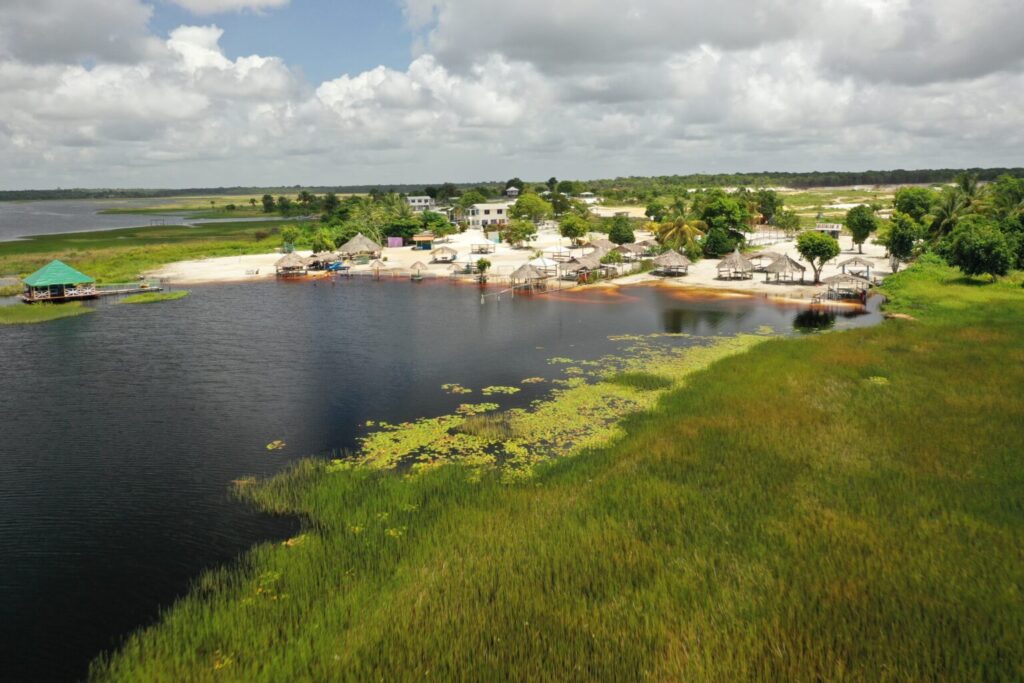Capoey is a natural lake located in the Essequibo region of Guyana, in the southern part of the country. It is a serene and scenic body of water situated within the rainforest and is known for its lush surroundings and tranquil beauty. Lake Capoey is one of the notable natural landmarks in the country and holds both ecological and cultural significance.
Geographical Location:
Lake Capoey is situated in the Upper Essequibo River region, and it is part of the Southern Rupununi area. The lake is located in the interior of Guyana, and it is relatively isolated, accessible primarily by boat or helicopter from nearby towns or settlements. The surrounding area is part of the country’s rainforest, offering a peaceful and untouched environment.
Ecological Significance:
Lake Capoey is surrounded by rich biodiversity and is a habitat for a variety of wildlife. The lake and its surrounding rainforest offer an important ecosystem for many species of birds, fish, amphibians, and mammals. Some of the animals that inhabit the area include river dolphins, fish species, and waterfowl. The region is also home to various species of plants and trees, many of which are native to the Amazon Basin.
The lake’s water is relatively clear and is fed by nearby rivers and streams, making it an important water source for the surrounding flora and fauna. It is part of the larger Essequibo River basin, which is one of the largest and most important river systems in the region.
Cultural and Historical Significance:
Lake Capoey is located within the traditional territory of the Amerindian peoples of Guyana. Specifically, the Arawak and Wapishana indigenous groups have long inhabited the region, relying on the natural resources of the lake and surrounding areas for sustenance. Fishing, hunting, and agriculture have traditionally been the primary ways of life for these communities.
The lake is important for local communities, as it provides both resources and a place of cultural significance. It serves as a part of their ancestral land and has been intertwined with their cultural practices and spirituality for generations.
Tourism and Recreation:
While relatively remote, Lake Capoey has the potential for eco-tourism, offering visitors the chance to experience nature in its most pristine form. Adventurers and eco-tourists who make the journey to the lake often enjoy the following activities:
Fishing: The lake’s clear waters are home to various species of fish, making it a popular spot for recreational fishing.
Bird Watching: The surrounding forests and wetlands are a haven for birdlife, including many species of waterfowl and tropical birds.

